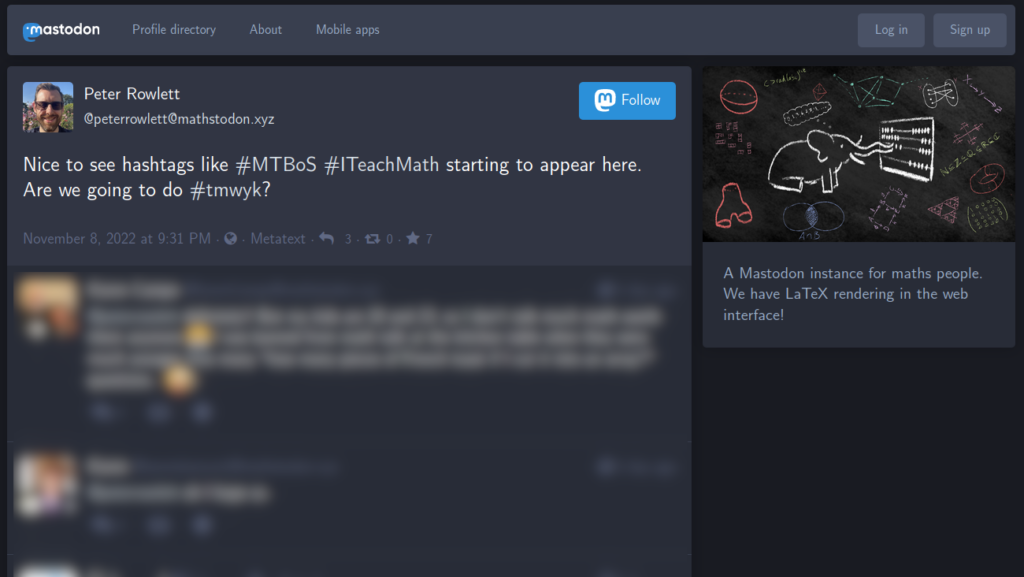A brief update about the state of social media. A couple of years ago, I wrote about the decline of Twitter and how I was going to consciously shift my activity to Mathstodon. Just over a year ago, we launched The Finite Group, a members’ club for mathsy people, partly inspired by the collapse of social media. We recently updated this to include a free membership.
Since then, I’ve ended up in an awful state where I’m somewhat engaging with X, Mastodon, Bluesky and Threads, but not engaging much with any. If I have something to broadcast, say a new blog post, I’ll put it on all four. If I have something to say or fancy a chat, I might put it on Mastodon. What’s happening just now is that more people seem to have decided to leave X for Bluesky. Will that stick? I don’t know, but it’s nice to see people who I used to see on Twitter being active, and for whatever reason those people haven’t got on with Mastodon, so it seems promising (from that point of view, though it’s not an ideal place to be).
Here’s my current position:
- If I want to have a natter about something maths, the absolute best place for that is The Finite Group. You can join for free and get access to a friendly online chat community run via Discord. (There are also paid memberships where you get to watch livestreams.)
- Beyond that, I’m going to try to engage with Mastodon (@peterrowlett@mathstodon.xyz) and Bluesky (@peterrowlett.net), for the time being.
- I’m going to stop looking at Threads. Things I post there get very little engagement, and I don’t see much I’m interested in. It’s also a regular little irritant because it keeps alerting me it has found something of interest to me, which turns out to be of no interest whatsoever.
- I continue to log into X because there are some large organisations there whose updates I would like to receive. I have to wade through Elon’s thought of the day and crypto ads to get there and I hope in time this will stop being part of my life. Will I continue to post stuff I do there? I’m not sure, to be honest.
